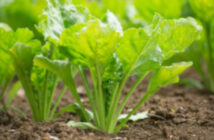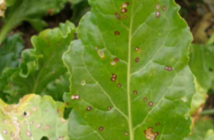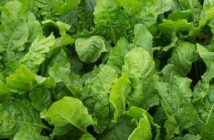Growers no longer need to sacrifice yield when selecting for nematode tolerance and disease resistance with new varieties from KWS combining exceptional yields with robust performance against pest and disease pressures.
With KWS achieving four of the top five highest yielding varieties on the BBRO Recommended List for 2018, there is every opportunity for growers to manage risk without compromising profitability.
Introduced for the 2018 season, DAPHNA is the first BCN-tolerant variety to top the BBRO Recommended List with a yield of 106.9% of controls while SENADA KWS has the best combined disease resistance of any variety and is the second-highest yielding variety on the RL with a yield of 105.6% of controls.
The new varieties continue KWS’s focus on developing high-yielding varieties with valued management characteristics.
“DAPHNA outperformed all varieties in trial over three contrasting seasons. Almost 7% higher yielding than the control varieties, it has the potential to improve enterprise gross margins,” says Ben Bishop, UK country manager for sugar beet at KWS.
“A low bolter count in the early sown window (<5th March) and with excellent resistance to both rust (score of (7)) and powdery mildew (6), DAPHNA sugar beet seed is suited to all farm situations and locations,” says Ben Bishop.
Continuing KWS’ commitment to deliver BCN tolerance and exceptional yields, DAPHNA will prove popular with growers as a means of controlling nematode infestations.
The second-highest yielding variety to join the 2018 BBRO Recommended List is SENADA KWS. An adjusted yield of 105.6% of controls it marks another advancement over the control varieties.
“SENADA KWS has the best combined resistance to powdery mildew and rust of any recommended variety which combined with its high yield make it an impressive all-round performer,”
“Delivering its best performances when sown from mid-March, SENADA KWS beet seed will appeal to growers wanting a range of varieties to spread the drilling workload,” adds Ben Bishop.
Both varieties fit well alongside DARNELLA KWS, last year’s highest-yielding variety, and SABATINA KWS, the most widely grown variety in the UK for the past two years and highest-yielding variety on the 2015 RL.
“Growers have come to prize the yield consistency of SABATINA KWS and appreciate its low bolting and reliable establishment performance. Its yield of 103.8% of controls is comfortably ahead of the control varieties ensuring it remains a compelling proposition,” says Ben Bishop.
Growers looking for another BCN-tolerant variety to sow alongside DAPHNA, should consider CANTONA KWS sugar beet seed. A top-five yielding variety, it yields over 3% higher than the control group of varieties.
“One of a new generation of KWS varieties to feature BCN tolerance, CANTONA KWS is still an excellent performer and the outstanding second choice variety for those in this situation. High sugar content of 18% and solid resistance to both powdery mildew and rust along with a noted reliable performance against downy mildew in BBRO trials make CANTONA KWS a great all-round performer,”
“Good early-sown performance further supports its appeal and it has proven an excellent choice among growers in 2017 regardless of BCN populations,” says Ben Bishop.
With the expansion in sugar beet crop into areas further from the factories than has been typical in recent years, haulage costs will be a concern. In ALISHA KWS growers have a proven performer at 18.2% it is the highest sugar content of any Rhizomania-resistant variety, making it highly suited to those located far from a sugar factory.
KWS expects all its high-yielding varieties to be popular in 2018 and intends to have enough seed available to fulfil grower expectations.




